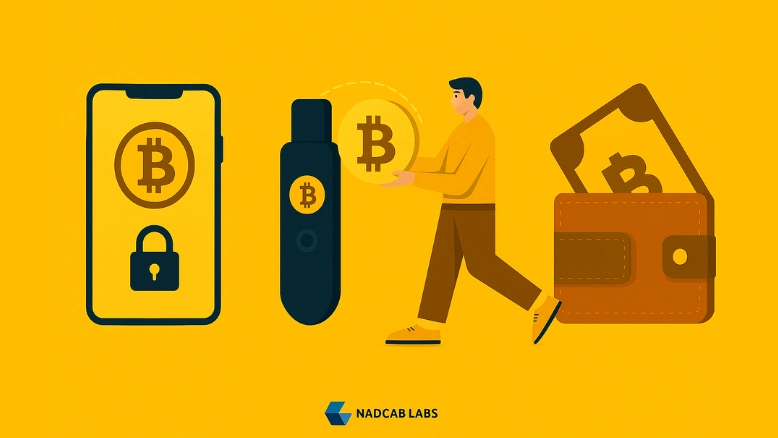
Proof of Stake is a consensus algorithm used to validate transactions and create new blocks in a blockchain. Unlike Proof of Work, where miners compete to solve cryptographic puzzles, PoS allows network participants, known as validators, to create blocks and validate transactions based on the number of coins they hold and are willing to “stake” as collateral.
What is Proof of Stake (PoS) in Web3?
Proof of Stake (PoS) is a consensus mechanism in Web3 Development where validators are selected to create and validate new blocks based on the number of Cryptocurrency Tokens they hold and are willing to stake. Unlike Proof of Work (PoW), which requires extensive computational power, PoS reduces energy consumption by leveraging the financial stake of validators. For businesses and developers looking to integrate PoS into their Blockchain Projects, partnering with a Web3 Consulting Company can provide essential expertise and guidance. This approach not only enhances security and efficiency but also aligns with the principles of Web3 by promoting decentralization and reducing environmental impact.
How Does Proof of Stake Work in Web3?
Proof of Stake (PoS) in Web3 operates by selecting validators to create and verify new blocks based on the number of tokens they hold and are willing to lock up as collateral. In this system, validators are chosen in proportion to their stake, incentivizing them to act honestly as they have a financial interest in maintaining network integrity. This contrasts with Proof of Work (PoW), which relies on computational power. PoS reduces energy consumption and enhances scalability by relying on staked assets rather than extensive mining operations. For those looking to implement or optimize PoS in their Web3 projects, Web3 Consulting Solutions can offer expert guidance and support to ensure efficient integration and robust performance.
Role Web3 Play in Implementing PoS
-
Enhanced Scalability
Web3 supports PoS by improving scalability and handling higher transaction volumes efficiently.
-
Decentralization
Web3 ensures that PoS maintains decentralization, allowing validators to be chosen based on their stake rather than computational power.
-
Improved Security
Web3 integrates advanced security features, making PoS networks more resistant to attacks and fraud.
-
Energy Efficiency
Web3 promotes PoS as a more energy-efficient alternative to Proof of Work (PoW), reducing the environmental impact.
-
Expert Guidance
A Web3 Development Company offers expertise in integrating PoS into blockchain projects, ensuring smooth implementation and optimization.
Can Proof of Stake Reduce Transaction Fees in Web3 Platforms?
Yes, Proof of Stake (PoS) can reduce transaction fees on Web3 platforms. By replacing the energy-intensive Proof of Work (PoW) with PoS, which relies on validators who Stake Cryptocurrency rather than performing complex computations, the overall cost of maintaining the network decreases. This reduction in operational costs can lead to lower transaction fees for users. Additionally, consulting with a Web3 Consulting Firm can provide valuable insights and enhance scalability and efficiency, which further contributes to reducing fees as the network can handle more transactions simultaneously.
Are there security risks with Proof of Stake in Web3?
Yes, there are security risks with using Proof of Stake (PoS) in Web3 development. While PoS is more energy-efficient and scalable than Proof of Work, it still has some weaknesses. For example, large stakeholders, or “whales,” could have too much control over the network. PoS systems can also be vulnerable to attacks like nothing-at-stake and long-range attacks. To reduce these risks and improve security, working with Web3 Consulting Services can help with setting up and improving PoS. Using techniques like , a leading Zero-Knowledge Proofs (ZKPs)can also add extra protection by keeping data private while ensuring its accuracy.
Security Implications of Proof of Stake For Web3
-
Centralization Risk
Large stakeholders or validators in a PoS system may exert undue influence, leading to centralization.
-
Nothing-at-Stake Attack
Validators might vote on multiple chains without penalty. Web3 Development Services can implement safeguards.
-
Long-Range Attacks
Attackers might create an alternative blockchain from an old block, undermining the network’s integrity.
-
Slashing Risks
Validators risk losing their staked assets for malicious behavior, which can be a significant deterrent.
Why are Web3 Firms Adopting PoS?
Web3 Firms are adopting Proof of Stake (PoS) because it offers several advantages over traditional consensus mechanisms like Proof of Work. PoS enhances scalability and reduces energy consumption, making it more environmentally friendly and cost-effective. By leveraging validators who stake their cryptocurrency as collateral, PoS also fosters greater network security and efficiency. For firms seeking to implement or optimize PoS, partnering with a Blockchain Consulting Firm can provide critical expertise and guidance, ensuring a smooth transition and effective integration into their Web3 platforms.
What PoS Expertise Does Nadcab Labs Offer?
Nadcab Labs, a leading Blockchain Development Company, offers extensive expertise in Proof of Stake (PoS) solutions tailored to the needs of Web3 projects. Their PoS expertise encompasses several critical areas, including the design and implementation of PoS consensus algorithms, which are essential for ensuring secure and efficient transaction validation in decentralized networks. They specialize in customizing PoS protocols to enhance scalability and reduce transaction costs while maintaining high levels of network security.





